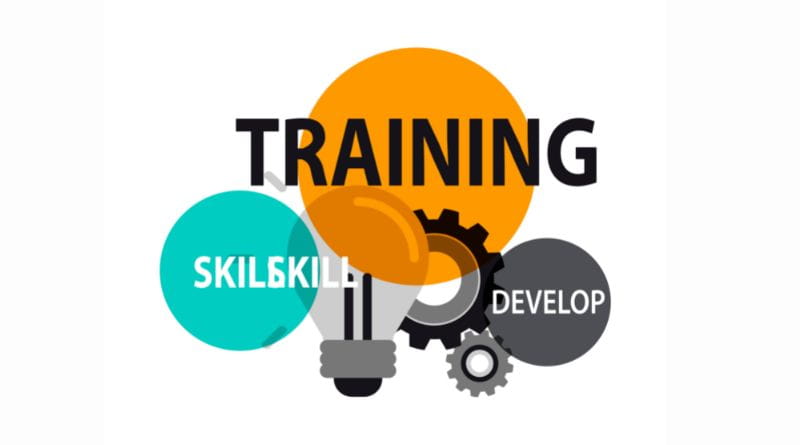In an era where competition for jobs and business opportunities is fiercer than ever, having the right skill set is no longer optional—it’s essential. Whether you’re an entrepreneur, a professional, or a fresh graduate, possessing the right mix of technical skills and functional skills can be the deciding factor in career success.
Let’s explore the vital differences between these two categories, backed by current data and industry insights, to understand why neglecting either can derail your ambitions.
Case Study: Bridging the Gap Between Technical and Functional Skills in Modern Workplaces
Background: A Tale of Two Teams
In 2025, a mid-sized IT company, TechPro Solutions, faced a significant hurdle in delivering a large-scale project for a retail client. The project involved developing a custom e-commerce platform with advanced analytics, requiring both technical proficiency and effective team collaboration.
Two teams were assigned to the project:
- Team Alpha, composed primarily of technically skilled developers, data analysts, and designers.
- Team Beta, featuring individuals with functional skills such as project management, communication, and problem-solving but limited technical expertise.
The project’s success depended on the seamless integration of technical execution and functional coordination. However, the stark difference in the skill sets of the two teams led to challenges that underscored the importance of balancing technical skills and functional skills.
The Technical Skill Advantage: Team Alpha
Team Alpha excelled in technical expertise. Its members could:
- Write optimized code to build complex algorithms for the platform.
- Develop visually appealing designs using advanced graphic tools.
- Configure data analytics pipelines to provide actionable insights.
However, the team encountered key issues:
- Communication Gaps: They struggled to effectively convey project updates to stakeholders, leading to misaligned expectations.
- Collaboration Challenges: Team members preferred to work in silos, which delayed the integration of project components.
- Problem Escalation: Without strong problem-solving frameworks, minor issues grew into larger bottlenecks.
Result: Team Alpha missed critical deadlines despite their technical brilliance.
The Functional Skill Advantage: Team Beta
Team Beta, on the other hand, lacked technical proficiency but excelled in functional skills:
- Project Management: Clear timelines and milestones were established, ensuring steady progress.
- Effective Communication: Stakeholders were regularly updated, building trust and transparency.
- Critical Thinking: The team proactively identified potential risks and mitigated them.
However, Team Beta faced its own limitations:
- Technical Dependence: They had to frequently consult Team Alpha for executing complex tasks, causing delays.
- Limited Innovation: Their lack of technical skills hindered the team’s ability to suggest cutting-edge solutions.
Result: While Team Beta maintained stakeholder confidence, their inability to execute technical tasks impacted overall project efficiency.
The Turning Point: Integrating Technical and Functional Skills
Recognizing the shortcomings of both teams, TechPro Solutions restructured its approach by creating Team Gamma, combining members from both teams. This integration allowed for a balanced skill set:
- Technically Skilled Individuals handled specialized tasks like coding, analytics, and design.
- Functionally Skilled Individuals managed timelines, facilitated communication, and provided strategic direction.
Key changes were implemented:
- Cross-Training: Technical experts were trained in communication and teamwork, while functional team members learned basic coding and analytics.
- Collaborative Tools: Platforms like Slack and Jira were introduced to streamline communication and task management.
- Regular Feedback Loops: Weekly check-ins ensured alignment between technical execution and functional coordination.
Outcome: Team Gamma delivered the project 20% ahead of schedule with a 98% client satisfaction rate.
Key Differences Between Technical and Functional Skills
| Aspect | Technical Skills | Functional Skills |
|---|---|---|
| Definition | Task-specific expertise in tools, methods, and technologies. | Broad abilities like communication, teamwork, and problem-solving. |
| Focus | “What” you do. | “How” you do it. |
| Training | Acquired through education, certifications, and practical experience. | Developed through experience, mentorship, and personal development. |
| Examples | Coding, data analysis, graphic design. | Time management, leadership, conflict resolution. |
| Impact | Enables efficient task execution. | Ensures collaboration and project alignment. |
Lessons Learned
- Balanced Teams Perform Better: A combination of technical and functional skills is vital for achieving project goals efficiently.
- Cross-Skilling Enhances Adaptability: Employees equipped with both types of skills are more versatile and valuable in dynamic environments.
- Leadership Relies on Functional Skills: While technical skills drive execution, functional skills are critical for managing teams and aligning objectives.
Real-World Relevance
According to the 2025 LinkedIn Workplace Trends Report:
- 92% of hiring managers believe that combining technical and functional skills is crucial for long-term success.
- Organizations with balanced teams report a 34% higher project success rate compared to those focusing solely on technical expertise.
Conclusion
The case of TechPro Solutions highlights the undeniable importance of both technical and functional skills in achieving organizational success. While technical skills ensure high-quality deliverables, functional skills create the framework for collaboration, adaptability, and strategic growth.
In 2025, professionals and organizations alike must prioritize skill integration to remain competitive in a rapidly evolving world. Developing a workforce that bridges the gap between these two skill sets isn’t just an advantage—it’s a necessity for sustainable success.
What Are Technical Skills?
Technical skills are specialized abilities gained through formal education, training, or hands-on experience. These skills involve proficiency with tools, software, and methodologies specific to a particular domain.
Examples of Technical Skills:
- Programming languages (Python, JavaScript, etc.)
- Data analysis and visualization
- CAD for engineering and design
- Cloud computing
- Cybersecurity
The Rising Demand for Technical Skills in 2025
According to the World Economic Forum’s Future of Jobs Report, technical skills like data analysis, AI, and software development are among the top 10 skills employers seek. Additionally:
- 85% of businesses surveyed in 2025 prefer candidates with advanced technical skills.
- The global digital economy is projected to grow to $24 trillion by 2025, amplifying the demand for tech-savvy professionals.
Why They Matter
Technical skills allow individuals to:
- Perform their job roles with precision.
- Stay updated with technological advancements.
- Solve industry-specific problems effectively.
For instance, in the IT sector, mastering cloud platforms like AWS or Microsoft Azure can increase employability by 25%, according to LinkedIn Learning.
Functional Skills: The Game Changer in a Collaborative World
Unlike technical skills, functional skills are broader, transferrable abilities that empower individuals to adapt, communicate, and lead across diverse contexts.
Key Functional Skills:
- Communication
- Problem-solving
- Teamwork
- Time management
- Leadership
Current Statistics Highlighting the Value of Functional Skills
- A 2024 LinkedIn Global Trends Report reveals that 92% of hiring managers prioritize functional skills when evaluating candidates.
- By 2025, problem-solving will rank as the third most critical skill, according to the World Economic Forum.
- Teamwork, identified as the second most in-demand soft skill by Deloitte, is deemed “very important” by 72% of employers.
Comparison of Technical and Functional Skills
| Skill Type | Key Focus | Examples | Importance in 2025 |
|---|---|---|---|
| Technical Skills | Task-specific knowledge and tools | Coding, data analysis, CAD | High demand in tech-heavy industries like IT and finance |
| Functional Skills | Broader, transferrable abilities | Communication, teamwork, problem-solving | Critical for leadership and cross-industry success |
The Hidden Relevance of Soft Skills in the Digital Age
While technical skills address what you do, functional skills define how you do it. With the rise of automation, tasks traditionally handled by humans are now being replaced by AI and robots. However, machines can’t replicate functional skills like empathy, critical thinking, or collaboration.
Soft Skills in Numbers
- 75% of long-term job success depends on soft skills, according to a 2025 study by Harvard University.
- AI integration in workplaces will increase the need for soft skills by 25% by 2025 (McKinsey Global Institute).
Consequences of Neglecting Skill Development
If you’re not actively improving your technical and functional skills, you risk:
- Career stagnation: 50% of professionals who fail to upskill lose out on promotions, according to LinkedIn.
- Missed opportunities: By 2025, the talent gap for technical roles will leave over 2 million jobs unfilled.
- Irrelevance in the market: Over 40% of companies consider obsolete skills as the biggest hiring deterrent.
Why Combining Technical and Functional Skills is Non-Negotiable
A professional with a mix of technical and functional skills becomes a T-shaped individual—someone with deep expertise in one area (technical skills) and broad abilities to collaborate and adapt (functional skills).
Examples of Successful Integration:
- Data Analysts: Strong technical skills in Python and Excel, paired with functional skills in storytelling and communication, make data actionable for businesses.
- Project Managers: Technical knowledge of project management tools combined with time management and leadership results in timely, efficient delivery.
Practical Steps to Upskill in 2025
- Enroll in Training Programs: Platforms like Coursera, edX, and Udemy offer certifications in technical areas like AI or functional skills like leadership.
- Leverage Workplace Learning: Companies like Google and Microsoft emphasize hybrid skills through internal training initiatives.
- Seek Mentorship: Experienced professionals can guide you in developing both technical and interpersonal skills.
- Stay Updated: Subscribe to industry blogs and attend workshops to remain relevant.
Final Thoughts
While technical skills equip you to perform specific tasks, functional skills ensure you can work effectively with others and adapt to changing circumstances. In a rapidly evolving job market, both sets of skills are indispensable. By investing in technical and functional skill development in 2025, you’re not just future-proofing your career—you’re unlocking pathways to personal and professional growth.
Key Takeaways
- Technical skills like coding, data analysis, and cybersecurity are critical for task-specific roles in a digital economy.
- Functional skills such as communication, teamwork, and time management enable broader adaptability and leadership.
- The ideal candidate for 2025 combines both skill sets to thrive in competitive environments.
By prioritizing skill development today, you can secure a brighter, more successful tomorrow.







